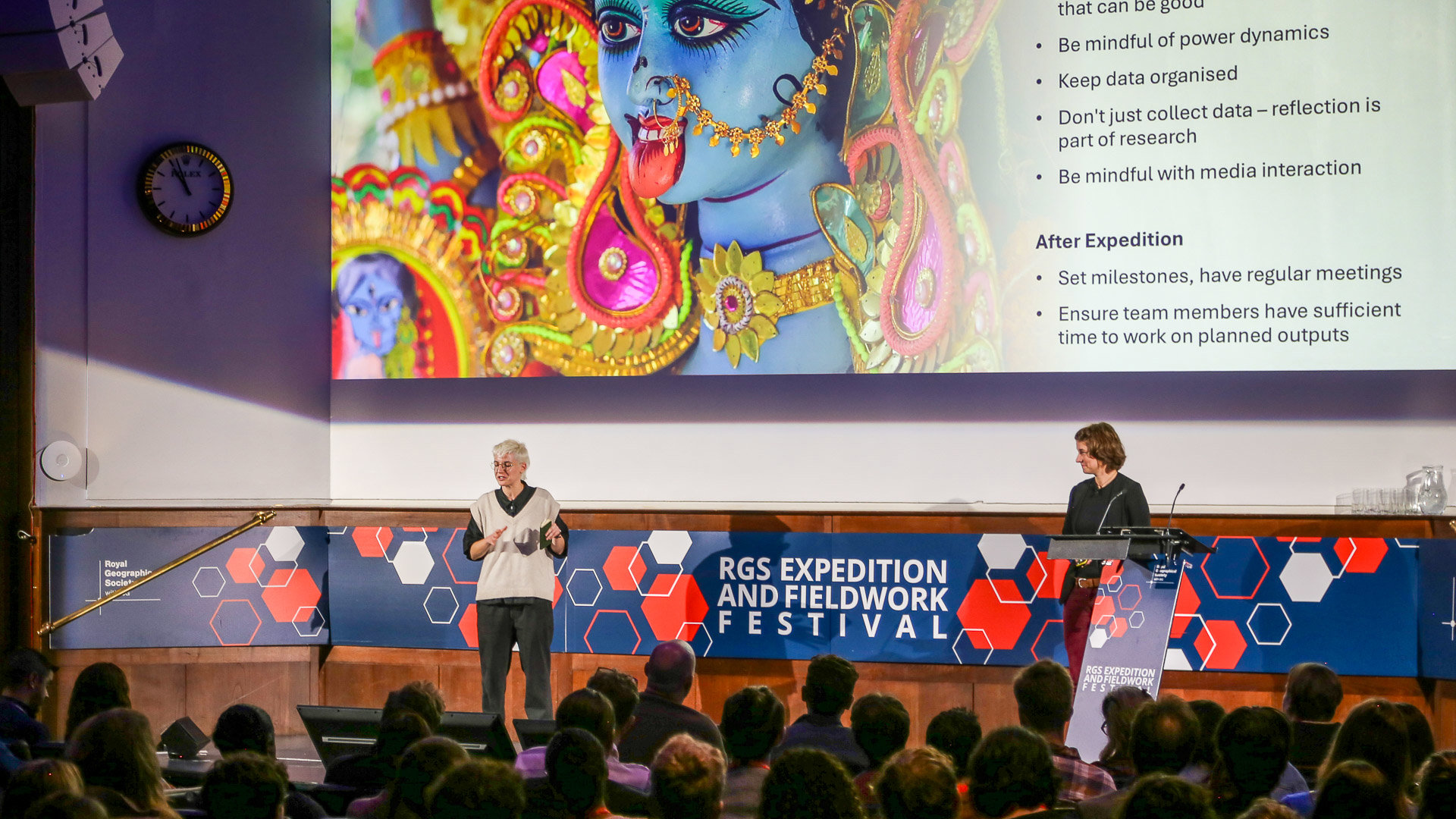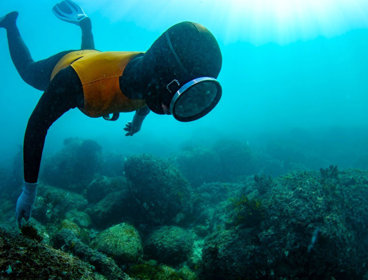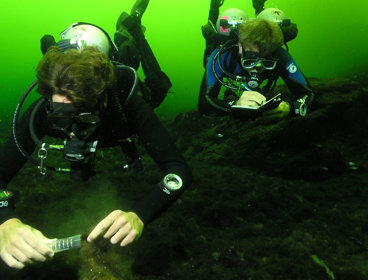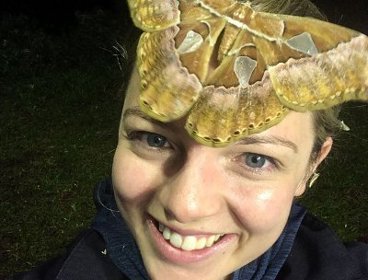For nearly 200 years, the Royal Geographical Society has been at the forefront of exploration and expedition planning. We understand that securing grant funding is a crucial step for many expeditions. This article, part of our collection of expedition planning resources, provides targeted advice on navigating the expedition grants landscape, from crafting a compelling application to managing your grant-funded project effectively.
What are grant-giving organisations?
Every year, a multitude of organisations provide funding to projects that they deem suitable for their support. From biodiversity and geographical surveys to the development of ecotourism areas, organisations both large and small offer funding for individuals and projects, in the same vein as when eligible students receive grants for their studies. The Society maintains a directory of grant-giving organisations funding expeditions and field projects, in addition to our own wide-ranging grants programme.
Organisations generally allocate grants to projects that fit their domain, rather than simply providing general financial aid. No matter what your project entails, it’s likely that there’s a grant-giving organisation into which your idea fits.
Organisations generally operate to specific standards and approvals for funded projects. Transparency and accountability are maintained through robust review processes to ensure that funds are impartially directed towards the most promising and impactful projects, often sustained by charitable donations and membership support. Team members generally put together an application or proposal tailored to the grant they’re aiming to get and after a review process the successful grant recipient will be notified.
Identifying suitable grant opportunities
Before constructing your expedition grant application, you should research the many available grants and identify which will be the most suitable for your area of work to give yourself the best chance of being granted funds for your project.
As Dr Julian Martin recommended in his talk at RGS Explore 2024, “different funders have different priorities. Research potential funders thoroughly to understand their interests and tailor your approach accordingly.”
Research previously supported projects to see what type of expeditions have been recipients of each grant. Our grants pages list all available Society grants, as well as stories from previous recipients. The RGS Expeditions Database lists many more grant-funded expeditions taking place worldwide and spanning many decades.
In addition to supporting specific areas of research, some funders are interested in supporting projects located in certain countries or regions, or incorporating a particular community or environment. This should be all considered when planning an approach to a potential funder.
Dr Eleanor Drinkwater, entomologist, expedition leader and Society grant reviewer, suggests that a progressive approach to funding can be a useful option: “There are a lot of grants of just £150-£500. These very small grants can be useful for increasing your legitimacy. If you can show that you already have a small grant, it can help you with the bigger grants.”
Building a budget
Once you’ve identified which organisation or organisations would be the most suitable for funding your project, you should put together a robust and thorough budget. This is the overarching financial framework for your entire expedition.
Potential funders will want to see that you are fully aware of the financial realities of embarking on an expedition prior to asking for support, so doing this is key. This will add credibility to your proposal, as it will be clear that you are taking your project seriously, which is especially important if this is your first foray into expedition grants.
Your funders will want to know that their financial support will not be misspent, you will be producing a meaningful contribution to geographical knowledge and that they will be getting a reasonable return on their investment. Ultimately, the people who make the decision to award you with funding will also have accountability, so a safe and meaningful investment is crucial to them as much as it is to you.
When doing your research, you will notice that different funders provide support for a different array of costs. When submitting your budget to them, you should align it with funders’ priorities and restrictions to give yourself the best chance of gaining the support you need.
As Julian stated at RGS Explore 2023, “be detailed and realistic. When creating a budget for grant applications, be as specific as possible with costs. Accommodation, flights, food. Vague figures are not well-received.”
Crafting a compelling grant proposal
Double-check the eligibility criteria of the grant-giving organisation you wish to approach. Many have very specific requirements for their grants, so you need to ensure that your project has everything in place to meet those requirements before putting in the time and energy applying. Putting together a compelling proposal takes time. Approach all the requirements thoroughly and demonstrate that you have the necessary skills and experience to succeed.
Every year, there are all manner of ambitious and meaningful projects which are competing for a limited amount of funding from the Society and elsewhere. You will need to stand out from the crowd.
Ask yourself: How can I craft a compelling narrative to really showcase my project in the most engaging way possible? You will need to first answer the question of why the grant decision makers at your target organisation should care about your grant application over the others and then decide which is the best way of communicating it clearly and inspirationally.
What is unique about your project? “What really pops out is suddenly somebody says: I really, really want to go on this expedition to this particular place because there’s this amazing species that has only been sighted four times”, says Dr Drinkwater. “Draw people in […] imagine you are a writer who is writing the hook for their best-selling novel. Why do you want people to care?”
As well as the creative aspect, you can demonstrate your commitment and preparation through a well-developed plan. Show you are committed and prepared – make contacts, get permissions, develop a timeline. All of this will help build your credibility in the eyes of your potential supporters and increase your chances of getting noticed.
Be safe, responsible and ethical. Develop a risk assessment and crisis management plan. Identify environmental, social and cultural impacts and strategies to minimise and mitigate these.
Ask for help
If it’s your first time applying for a grant, the whole process may seem intimidating. Fortunately, many of the people who previously experienced this process are now the people who assess grant applications. They are often happy to help.
Dr Drinkwater agrees. “If you email and say, ‘I want to apply for this grant, would I be eligible?’ Or ‘is this the type of thing that you fund?’, in most cases, you get a lovely person on the other end of the email, who will help guide you and support you through it.”
“Don't be afraid to ask for help,” she continues. “And don't be afraid to apply for these grants, because they are doable, and there are lots of grants specifically for undergraduates and other kinds of early-stage adventurers and researchers.”
“It's an iterative process,” Dr Drinkwater continues. “Getting someone to [read your proposal] who doesn't know anything about the subject, can be really good way to get that clarity in what you're trying to say.”
Effectively managing grant-funded projects
Should your team successfully be awarded a grant from one or more organisation, it is critically important to properly manage your funds as well as the project deliverables.
Maintain detailed records of all income and expenses, including receipts. Be clear with team members about allowable expenses. Your funders will want and need to know where their support has gone. You are accountable to them, and they are in turn accountable to their own stakeholders.
An effective way of doing this is to appoint a treasurer, preferably someone with accounting skills, in the early days of your project development. This person will be responsible for maintaining detailed records of all income and expenses, including receipts. Having a detailed budget will give you a head start in this. Your team members should also be made aware of what expenses can be incurred by the expedition and are acceptable to go through your project accounts.
Budgets will also evolve as your plans develop. You may receive more funding than you initially set out for, allowing you to increase the scope of your project. Similarly, many factors may limit what you set out to achieve. Flight prices fluctuate, equipment prices may go up or a many other situations may arise that effect your ability to complete your goals. With all of these, it is essential to maintain financial records, regularly review your budget and update it as necessary, to enable you communicate transparently with your stakeholders.
When your expedition wraps, share your findings and demonstrate how your project has met the criteria that the grant was set up to support, and any additional benefits that have arisen from your project.
Shane Winser, Expeditions Advisor at the Society, says, “Whether it’s websites, social media, or crowdfunding pages, the one thing that most expeditions don’t do is to keep them up to date, and when they come home, actually report what has been achieved. And if it’s gone wrong as it sometimes does, be honest about why it went wrong. Talk about it, why it went wrong so other people can learn from that. But also thank the people who have helped you.”
Building relationships with funders
When embarking on your first expedition fundraising journey, you should consider the importance of cultivating an ongoing and lasting relationship with potential funders. This can be as important as the initial application. Funders appreciate applicants who communicate their work effectively and engage a broader audience.
Informing grant administrators of your progress during your project is an important way to show that their funding has not been misspent. By directly providing them update reports, photographs and video, your funders will feel valued and not just a member of a wider audience.
Any significant changes to plans are important to convey to your funders. Changes in the make-up of the team, your aim, project dates, or anything that is important for your funders to know about should be communicated quickly and openly. The last thing a funder will want is to find out about a significant change in your project through second-hand means such as social media. Keep them informed, this will build trust and a better working relationship.
You should demonstrate that you will share your findings and give something back. Thinking long term, you may wish to consider the possibility of further expeditions, and may want to put in another application to the same grant-giving organisations in future years. Your expedition could even turn into a recurrent research project with longer term career prospects for you and members of your team.
Conclusion
Securing and managing grant funding for your expedition requires careful planning, a compelling proposal, and diligent project management. By understanding the purpose of the grant, crafting a strong application, and demonstrating how you meet their criteria, you can increase your chances of success.
The Society is here to support you in your expedition endeavours, providing resources and guidance to help you navigate the grant funding process and embark on your journey of exploration and discovery.
Stay updated
Be the first to hear when new resources are launched by subscribing to our monthly exploration community newsletter. You'll also receive relevant news and events from the Society.
- You will be asked to create a free Society account if you haven't already done so.
- Once logged in, navigate to My preferences and select News and events about fieldwork and expeditions.





